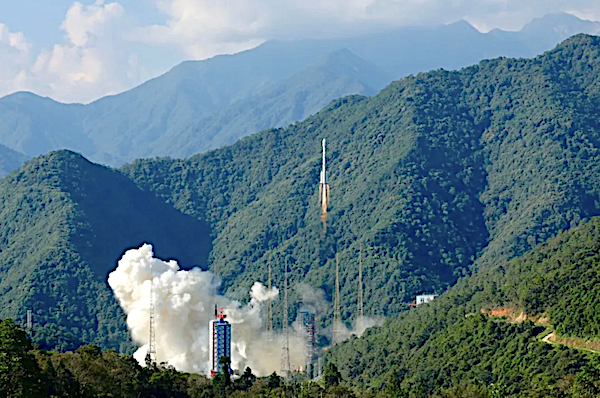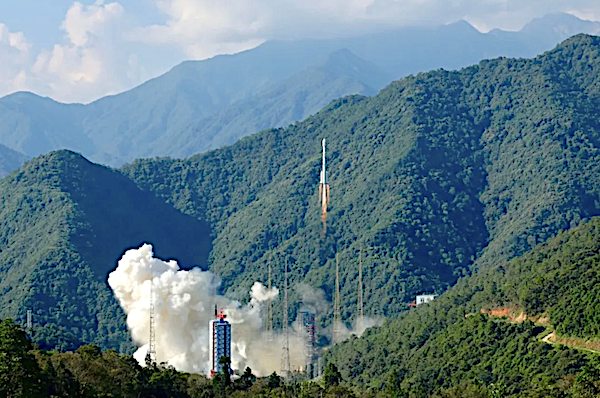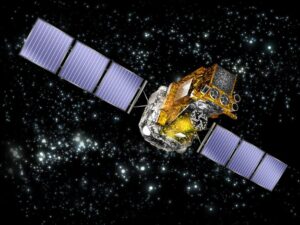

China is planning to develop its next-generation BeiDou system, which will be technologically more advanced and functionally more powerful, and offer higher quality services.
Three experimental satellites of this navigation system are scheduled for launch around 2027, while network deployment will begin by about 2029 and will be completed by 2035.
China is targeting the achievement of critical technological advancements by 2025, as shown by a report released on Thursday at a symposium to mark the 30th anniversary of the construction of the country’s BeiDou Navigation Satellite System (BDS).
The next-generation BeiDou system will deliver real-time, highly accurate navigation, positioning and timing with precision levels ranging from meters to decimeters, according to the China Satellite Navigation Office.

It will be characterized by precision and trustworthiness, seamless accessibility, intelligent capabilities, networked integration and adaptable flexibility, said Yang Changfeng, chief designer of the BDS.
Also, the system will provide comprehensive coverage to user terminals spanning from the Earth’s surface to the depths of space.
The Chinese-made BDS was initiated in 1994. The construction of BDS-1 and BDS-2 was completed in 2000 and 2012, respectively. When BDS-3 was completed and put into service on July 31, 2020, China became the third country to have an independent global navigation satellite system.
The hybrid orbital constellation of BDS stands out as a “Chinese solution” compared to other global satellite navigation systems that utilize a single orbital constellation configuration.
BDS-3 consists of 24 medium Earth orbit satellites, three geostationary Earth orbit satellites and three inclined geosynchronous satellite orbit ones, setting a new standard for global satellite navigation systems.
The next-generation BDS will “optimize the constellation structure to form a mixed constellation of high, medium and low Earth orbits,” according to Xie Jun, deputy chief designer of the BDS.
It will also feature an integrated and efficient ground infrastructure, ensuring flexible resource allocation, data sharing and uninterrupted operations.
The BDS services and related products have been exported to more than 130 countries, providing users with diversified choices and better application experience, and promoting industrial development, according to a bluebook released in October.
China already has a total of 44 GPS satellites in orbit (at the end of 2023), known as the Beidou constellation. The country’s China Satellite Navigation System Management Office (CNSO) has explained how this existing system will be augmented.
According to Xinhua News Agency, CNSO says that by the end of 2025 it will have completed a design update and plans to launch three test satellites during 2027 into low Earth orbit (LEO) to ensure all is working well.
The new Beidou fleet will start launching in 2029 and be completed by 2035. These ‘next-gen’ craft “will provide highly accurate navigation, positioning and timing in real time, with accuracy levels ranging from metres to decimetres.
Beidou’s deputy chief designer Xie Jun told Global Times that its existing constellation would serve as the core for the upgraded system featuring new LEO satellites. Beidou products are currently exported to over 140 countries and regions.
The new technology is intended to be an improvement on China’s existing GPS satellites.
Xinhua
The post China set to build next-generation BeiDou system appeared first on SNN.



